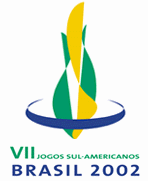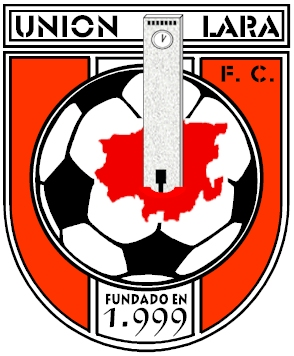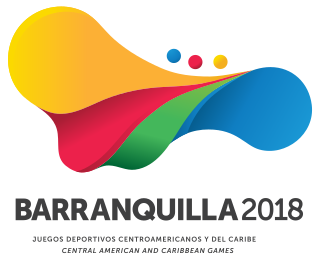
Arnis, also known as kali or eskrima/escrima, is the national martial art of the Philippines. These three terms are, sometimes, interchangeable in referring to traditional martial arts of the Philippines, which emphasize weapon-based fighting with sticks, knives, bladed weapons, and various improvised weapons, as well as "open hand" techniques without weapons.

A garrote or garrote vil is a weapon and a method of capital punishment. It consists of a handheld ligature of chain, rope, scarf, wire or fishing line, used to strangle a person.

Stick-fighting, stickfighting, or stick fighting, is a variety of martial arts which use simple long, slender, blunt, hand-held, generally wooden "sticks" for fighting, such as a gun staff, bō, jō, walking stick, baston, arnis sticks or similar weapons. Some techniques can also be used with a sturdy umbrella or even with a sword or dagger in its scabbard.

Juego del palo or banot is a traditional martial art/folk sport of stick-fighting practiced in the Canary Islands. It involves the combative use of a slender stick from 4 to 6 feet long, wielded in both hands, and characterised by fluid motion in attacks and defences.
The V South American Games were a multi-sport event held in 1994 in Valencia, Carabobo, Venezuela, with some events in Puerto Cabello and Caracas (shooting). The Games were organized by the South American Sports Organization (ODESUR). An appraisal of the games and detailed medal lists were published elsewhere, emphasizing the results of the Argentinian teams.

The VII South American Games were a multi-sport event held in 2002 in Rio de Janeiro, São Paulo, Curitiba, and Belém; all in Brazil. The Games were organized by the South American Sports Organization (ODESUR).

The III Bolivarian Games were a multi-sport event held between December 5–21, 1951, at the Estadio Olímpico de la Universidad Central de Venezuela in Caracas, Venezuela. The Games were organized by the Bolivarian Sports Organization (ODEBO).
The IX Bolivarian Games were a multi-sport event held between December 4–14, 1981, at the Estadio de Barquisimeto in Barquisimeto, Venezuela. The Games were organized by the Bolivarian Sports Organization (ODEBO). In February 1980, Barquisimeto was chosen to substitute the initial host city Lima in Perú. The Comité Olímpico Peruano renounced because of financial problems.

Unión Lara Sports Club is a Venezuelan football team based in Barquisimeto, Lara State. Founded in 1999, they currently play in the Venezuelan Third Division, holding home games at the Farid Richa Stadium, with a capacity of 12,480 people.

The XVI Bolivarian Games were a multi-sport event held in 2009 in Sucre, Bolivia. The competitions in Sucre took place from 15–26 November. A number of Bolivian cities hosted some of the sporting events, including Cochabamba, Santa Cruz and Tarija. Also, events were held outside of Bolivia, with Guayaquil, Lima, Quito and Salinas hosting a number of competitions. The Games were organized by the Bolivarian Sports Organization (ODEBO).
The major sports in Venezuela are baseball, basketball and football. Baseball in Venezuela originates with the early 20th century cultural influence of the United States oil companies. The Venezuelan Professional Baseball League was established in 1945. Football in Venezuela lags behind baseball, but its popularity in recent years has grown. Basketball and volleyball are also popular sports; there has been a national basketball league since 1974. The Vuelta a Venezuela is one of six cycling events in the UCI America Tour. The polo club Lechuza Caracas has had some success in North American polo competitions.

The 23rd Central American and Caribbean Games were held in Barranquilla, Colombia.

Antonio Leal is a Venezuelan foil fencer, Pan American champion in 2010 and bronze medallist at the 2011 Pan American Games. He also won a gold medal in the individual foil event at the 2013 Bolivarian Games, as well as a gold medal in team épée and a silver medal in team foil. He won a gold medal in individual foil at the 2017 Bolivarian Games.

Colombian grima is a martial art that was developed by Afro-Colombian communities during the colonial era that utilizes the use of a machete in combat.

The baston is one of the primary weapons of Arnis and Filipino martial arts. It is also known as yantok, olisi, palo, pamalo, garrote, caña, cane, arnis stick, eskrima stick or simply, stick.

The 2017 Bolivarian Games, officially the XVIII Bolivarian Games, was an international multi-sport event that was held from 11–25 November 2017, in Santa Marta, Colombia.
Machete fencing may refer to:
Fencing competitions at the 2022 Bolivarian Games in Valledupar, Colombia were held from 23 to 28 June 2022 at the Gran Salón of the Club Campestre.

The Coro Revolution, also known as the Colinada Revolution, was an armed insurrection led by General León Colina that occurred in Venezuela between October 1874 and February 1875 against the government of Antonio Guzmán Blanco. The conflict was one of the main armed movements against the dictatorship of Antonio Guzmán Blanco.













